Detailed history
Our story

Solar United Neighbors started with a simple question. “Mom, can we go solar?”
In 2007, 12-year-old friends Walter and Diego asked their parents to put solar on their homes in Washington, D.C.’s Mt. Pleasant neighborhood. The boys had just seen “An Inconvenient Truth.” They wanted to go solar to fight climate change. Walter’s mother, Anya Schoolman, made several phone calls to local installers. She discovered that going solar was an expensive and complicated process. Walter and Diego would not be talked out of it. Schoolman wondered if doing a bulk purchase with their neighbors might make sense. It could make it more affordable and make a bigger impact.
Within two weeks, Walter and Diego had signed up 50 other neighbors who wanted solar on their roofs. They formed the Mt. Pleasant Solar Cooperative – D.C.’s first solar co-op. Some co-op members wanted to rein in their rising energy bills. Some wanted to free themselves from the local monopoly utility. Others wanted to act on climate change. The co-op worked tirelessly. Members met in living rooms, got help from local solar providers, shared their knowledge, and worked through challenges. After two years, hundreds of meetings, and a successful campaign to pass landmark solar legislation, 45 families in Mt. Pleasant went solar.
Communities across the District were excited by the news of the co-op. They wanted to replicate it. In 2009, Schoolman created a nonprofit, D.C. Solar United Neighborhoods (DC SUN). It’s mission was to help other communities do just that. DC SUN received more requests than it could handle, especially as a volunteer organization. Soon it had completed solar co-ops in all eight wards of the District. It received calls from all over the country. Schoolman decided to form a national nonprofit. It would connect activists who were conducting similar kinds of experiments across the country.
The DC SUN model first spread to neighboring states through MD SUN, VA SUN, and WV SUN. As the organization grew and gained experience, we continually refined our solar co-op model. We found that co-ops were a highly effective, replicable, and scalable model. Co-ops delivered impressive benefits for individuals, communities, and a just, clean energy transition. In 2016, we added programs in Ohio and Florida, and in 2017 added programs in Minnesota, Pennsylvania, and New Jersey.
In 2017, we also launched Solar United Neighbors, with seven on-the-ground state programs and a national membership offering. Throughout all this growth and change, we have maintained our commitments to transparency, inclusivity, and focus on local priorities and partners.
Over the next several years, we built our national profile and began several national-scale programs. We also continued our on-the-ground work in states across the country, connecting with thousands of Americans who are ready for a new energy system. Our solar co-op program surpassed its 3,500th installation in 2018. We also expanded solar co-ops to include electric vehicle charging and battery storage — the first such bulk purchase programs of which we’re aware! The following year we added two state programs in the mountain west, Arizona and Colorado.
Like everyone, we found 2020 to be a challenge. But we adapted quickly. We pivoted our co-op and engagement programs to digital offerings. In April, we hosted our organization’s largest event to date, a digital screening of the movie “Current Revolution”. Hundreds of solar supporters joined together to watch the film and participate in a panel discussion with one of the film’s expert participants. We also hit a major milestone. We helped our 5,000th family go solar through our co-ops.
It was these successes that gave us the confidence to launch our most ambitious effort ever, the 30 Million Solar Homes campaign. This program seeks to address three urgent problems: climate change, economic downturn, and social injustice. It does so by rapidly scaling rooftop and community solar.
This effort bore sweet fruit in 2022. It helped us secure the most important pro-solar policy in a generation, the Inflation Reduction Act. This major federal victory is mirrored by state level success. We also earned recognition from the Department of Energy for our work across the country to help low-income families go solar.
In Florida, we rallied Sunshine State solar supporters to beat an attempt by monopoly utilities to deny solar owners fair credit for the electricity they generate. We added a new program in Puerto Rico. We’re excited to take on the challenge of transforming the Island’s energy system. There’s an incredible opportunity to put rooftop solar at the cornerstone. In Arizona, we launched an effort that will help seven Tucson nonprofit organizations go solar.
We are piloting these new efforts to make sure that when someone asks, “can we go solar?”, the answer will be “YES!”
Timeline
Year | Event | Media |
|---|---|---|
2007 | We started our work in Washington, D.C., as the Mt. Pleasant Solar Cooperative. We were a group of neighbors who wanted to go solar but didn’t want to navigate the process alone. That first group helped 45 neighbors go solar. | 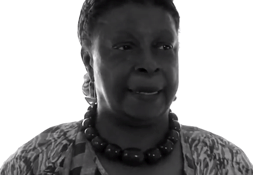 |
2008 | We helped pass the Clean and Affordable Energy Act of 2008. This paved the way for D.C.'s strong SREC market and is the foundation of residential solar market. | 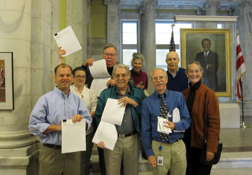 |
| We began regularly intervening on issues such as smart meters and net metering rules with the D.C. Public Services Commission. We also began watchdogging the local utility, Pepco, and advocating for consumer net metering and smart metering rights. We worked closely with the D.C. government’s Sustainable Energy Utility solar program to ensure it was run fairly and effectively. | 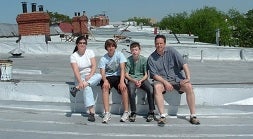 Watch "How to Start a Solar Co-op" |
|
| We organized the first of several neighborhood solar fairs in D.C. More than 1,000 neighbors in Mt. Pleasant came out to learn about solar, participate in fun activities, and connect with their neighbors. |  |
|
2009 | From 2009 through 2013, with the help of participants in the Mt. Pleasant Solar Cooperative, other solar co-ops popped up throughout D.C., including in Capitol Hill, Cleveland Park, Ward 7, Ward 8, Palisades, Shepard Park, Petworth, and Georgetown. Eventually at our city-wide Solar Congress, all the co-ops came together and became DC Solar United Neighborhoods (DC SUN). | 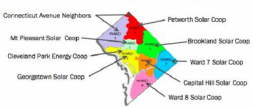 |
| MDV-SEIA, the trade association that represents solar companies in the Mid-Atlantic, named CPN's Anya Schoolman a Solar Champion. | 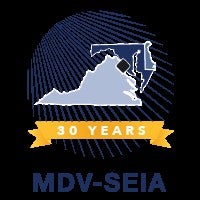 |
|
| CalFinder named CPN's Anya Schoolman one of its 10 Amazing Activists in the Name of Solar. |  |
|
2011 | We launched a national organization to further scale up our impact. Originally called Community Power Network, it served as a national clearinghouse of organizations that work on community-based renewables, including wind, solar, and biofuels. We showed the world that an emerging movement of groups and individuals was dedicated to the idea of producing its own renewable energy. Today we call it energy democracy. We shared resources with member groups that demonstrated how to successfully complete renewable energy projects in their communities. | 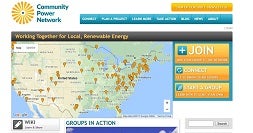 |
| In D.C., we fought for and helped pass the Distributed Generation Amendment Act of 2011. This closed the D.C. Solar Renewable Energy Credit (SREC) market so that the it would only benefit the D.C. ratepayers who fund the program. This created a strong long-term incentive for solar in D.C. and allowed the industry to grow. | 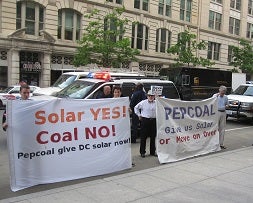 DC SUN supporters demonstrate at a Pepco Shareholders' meeting in 2011. |
|
| The Chesapeake Climate Action Network named Anya Schoolman a Climate Champion and honored for her outstanding climate leadership. | 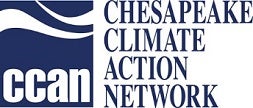 |
|
2012 | Solar United Neighbors of Virginia (originally called VA SUN) launched. Before VA SUN and solar co-ops, many people in Virginia believed solar was impossible to develop because of Dominion Power’s monopoly and the lack of incentives. We changed the conversation around solar in the state, using solar co-ops to demonstrate that solar is not only possible but that it makes economic sense. |  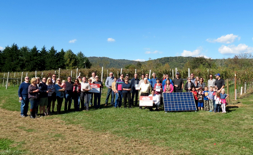 |
| Solar United Neighbors of Maryland (originally called MD SUN) launched. We began our work focusing on organizing projects using the University Park LLC model, where community members invest in a system installed on a community facility. The project eventually built momentum to pass legislation that brought community solar to Maryland. |  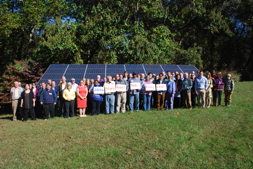 |
|
| Solar United Neighbors of West Virginia (originally called Solar Holler and then WV SUN) launched. In the beginning, we focused on developing new solar project models and changing the public conversation around solar. At the time, most newspapers were reporting that solar didn’t work in West Virginia. |  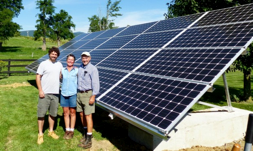 |
|
| We responded to requests for technical assistance from individuals and groups in Indiana, Louisiana, Georgia, Pennsylvania, New York, California, Maine, Oregon, and Massachusetts. In addition, we met and trained activists and groups in Toronto, Iowa, Minnesota, Virginia, Maryland, West Virginia, and North Carolina. | 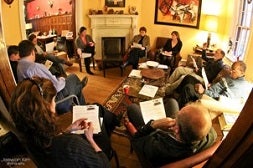 |
|
2013 | We partnered with the American Solar Energy Society to run a series of solar advocacy campaigns targeting key issues across the country. | 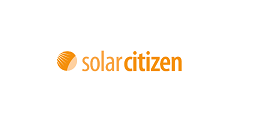 |
| We worked closely with several groups, including The Solar Foundation and the Natural Resources Defense Council (NRDC), to develop and launch the National Solar Schools Consortium. We convened the 10 founding organizations, helped the group define a core mission, and developed a detailed resource guide on how to take your school solar. |  |
|
| We secured passage of the Community Renewables Energy Act of 2013 in D.C.. The bill authorizes virtual net-metering and allows District residents to virtually “subscribe” to a solar installation. The electricity produced by their solar installation is then credited to their monthly electric bill. We worked throughout 2013 and 2014 to change the Public Service Commission’s proposed rules that reduced the rate that community solar subscribers would be credited for their subscription. The rate the commission set unfairly harmed low-income participants by undervaluing the electricity they would generate through community solar. Our coalition filed comments refuting this interpretation and worked tirelessly to ensure the rules were revised. We were finally successful in 2017. Check out our detailed campaign profile. | 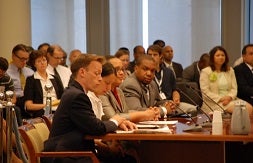 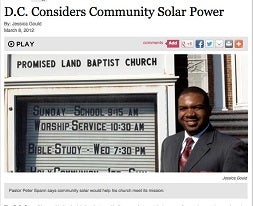 |
|
| In Virginia we fought for and won the right for nonprofits, congregations, and other community organizations to use Power Purchase Agreements (PPAs) to take advantage of federal tax incentives. | 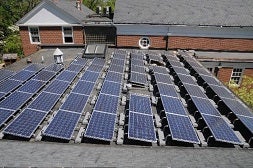 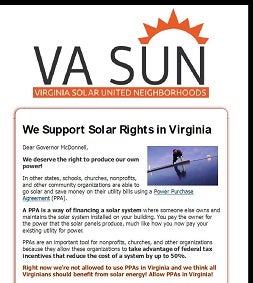 |
|
| We called attention to Dominion Power’s “greenwashing” campaign in Virginia, highlighting the utility’s failure to support solar. | 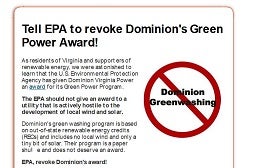 |
|
| In Maryland, we organized solar stakeholders to fight for community solar legislation. We ran education and outreach efforts, provided briefings and background information to key legislators, organized community meetings, and assembled expert panels that testified before both House and Senate Committees on the issue. Our coalition included environmental groups, private citizens, and solar industry leaders. Although the bill lost by a single vote in the Senate Finance Committee, we developed the infrastructure and connections to launch a successful policy push in 2014. | 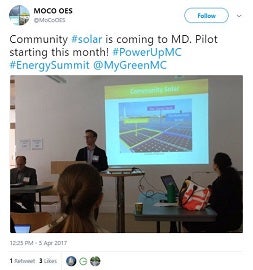 |
|
| We conducted workshops in Maryland on state-of-the-art solar and roofing technologies to allow Baltimore to install solar on its huge supply of low-sloped row house roofs, helping the city meet its climate action plan goals. | 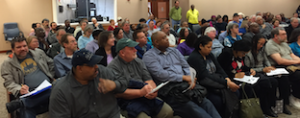 Maryland residents attend a solar information session.[/caption] Maryland residents attend a solar information session.[/caption] |
|
| We advocated for policies in West Virginia throughout 2013 that would allow municipalities to indirectly access solar tax credits, reducing the cost of solar for municipalities and incentivizing solar in the state. |  |
|
| In 2013, we developed a white paper on the structure of West Virginia’s net metering policies and how the Public Service Commission should reform the policies to better support solar development. | 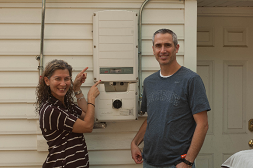 |
|
2014 | We partnered with the George Washington University Solar Institute in April of this year, convening 70 stakeholders to develop a report on how best to scale the deployment of solar to benefit lower income D.C. residents. We worked closely with leaders in the low-income housing community such as National Housing Trust and Enterprise Community Partners. This report provided groundbreaking detail on the challenges and opportunities of developing solar on low-income households. We also produced a series of recommendations for developing a low-income solar incentive program in D.C. | 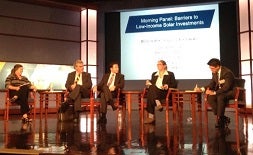 |
| We fought for a grant program that would jump start solar installations and clean energy jobs in Virginia. While the law didn’t get passed, we sent a clear message to legislators that a growing number of Virginians support local, clean energy. | 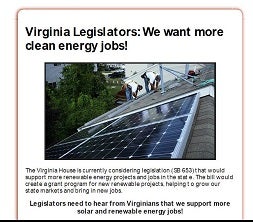 |
|
| We organized our first bulk purchase group in Virginia by Partnering with Community Housing Partners. The group, Solarize Blacksburg, used community organizing, bulk discounts, and new solar loan options to triple the amount of solar installed on Blacksburg homes in just three months. The effort increased the total amount of solar installed in the state in 2014 by five percent. This effort’s success spurred us to organize solar co-ops across Virginia. |  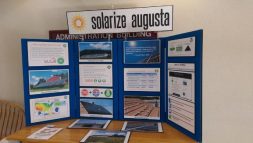 |
|
| Working with installers and activists, we helped Virginia homeowners stand up to homeowner associations that prevented them from going solar. | 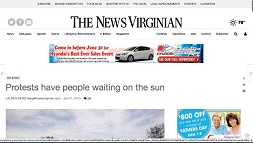 |
|
| We provided program design and technical support to Fairfax, Arlington, and Blacksburg governments that sponsored a bill to allow shared solar systems on apartment complexes. | 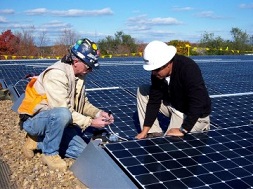 |
|
| President Obama named Executive Director Anya Schoolman a White House Champion of Change for her innovative and groundbreaking work to expand community solar and low-income solar deployment in D.C. | 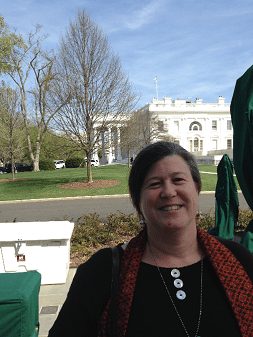 |
|
| In 2014, DC SUN formally intervened in the Formal Case 1119 with the DC Public Service Commission, to block a proposed acquisition of our local utility by the nuclear giant, Exelon. We engaged pro-bono legal representation and engaged in the legal process throughout the case. Our executive director served as an expert witness in the legal proceedings, and we organized hundreds of District residents to testify against the merger. Check out our detailed campaign report. | 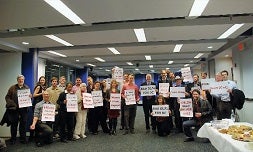  |
|
| We were the first organization to publicly raise the alarm about the Exelon takeover in a Washington Post op-ed. We subsequently organized a broad and diverse coalition of groups to oppose the merger. As leaders of the PowerDC coalition, we coordinated local organizations that ranged from ratepayers and low-income advocates, to environmental groups, jobs for justice supporters, and democracy advocates. The coalition focused on drawing public attention to the merger. Using public petitions, public meetings, and targeted public events, we created strong public pressure against the merger, with hundreds of citizens attending public hearings, more than 1,500 comments submitted online to the Public Service Commission, and significant media coverage. Check out our detailed campaign report. | 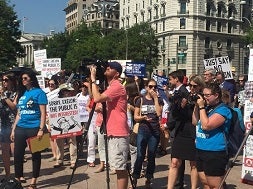 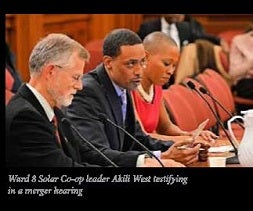 |
|
| We completed the first “Solar Holler” project in West Virginia. This was a 16 kW solar system on Shepherdstown Presbyterian Church. The model used a crowd funding approach allows community organizations, like churches or schools, to go solar by having their supporters sign up for an electric hot water tank regulator. This regulator is controlled remotely to generate revenue in the regional grid (PJM) ancillary services market. The homeowners then dedicate the income from the regulator to the church solar project. This model has gained nationwide attention and is a promising way to scale up deployment for nonprofits and community entities. | 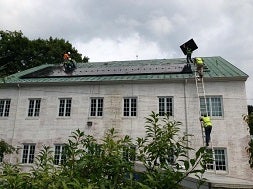 |
|
| One of our staff members spun off the Solar Holler project model and created a stand-alone private enterprise that has completed several crowd-funded projects. | 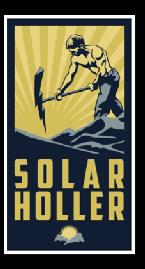 |
|
| The Monroe and Fayette County Solar Co-ops kicked off in West Virginia. They were the first of many solar co-ops across the state. | 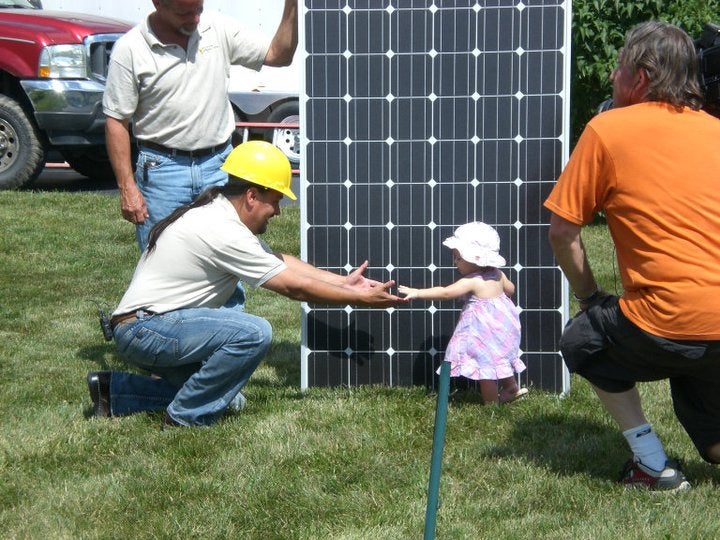 Image courtesy of Mountain View Solar |
|
| We organized a campaign to facilitate public comment on a West Virginia Public Service Commission (PSC) case to establish a registration process for solar homeowners who wanted to sell renewable energy credits. Previously, only utility-owned power plants were able to do so. Solar homeowners wanted to participate as well. Our surge of comments encouraged the PSC to approve a new process for homeowner registration. This policy has been key to scaling rooftop and community-owned solar in the state. | 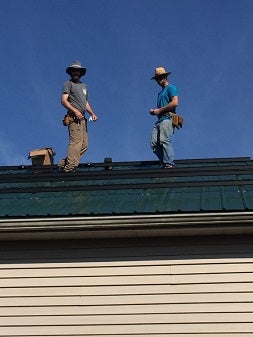 |
|
| We fought West Virginia utility companies that required homeowners to pay for unnecessary industrial scale metering equipment, if they wanted net metering of solar electricity. The requirements tacked $400 to $500 onto every installation. The comments we helped to generate pushed the PSC to remove the requirement. | 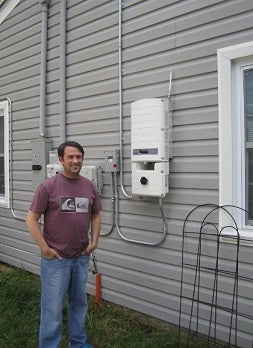 |
|
| We published the first account of how West Virginia net metering rules discriminate against businesses, churches, municipalities, nonprofits, and any institution that pays commercial electric rates. We sought to raise awareness about the unfair practices and highlight the number of businesses and organizations that would otherwise go solar were it not for these rules. | 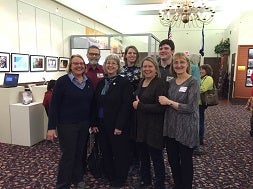 |
|
| We spearheaded an effort in West Virginia to broaden the definition of emergency generator back-up power for state grant and tax credits to include solar with battery back up. We delivered more than 300 petition signatures to members of the State Senate and House calling on them to act. | 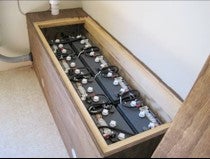 |
|
| We partnered with Community Purchasing Alliance to implement a bulk purchase for houses of worship in D.C., helping nearly a dozen congregations go solar. The process helped jump start a number of neighborhood solar co-ops, including one in partnership with Temple Sinai in Washington, D.C. | 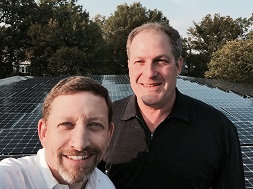 |
|
2015 | We organized the first two solar co-ops in Florida in partnership with Central Florida Solar Advocates and a group of dedicated volunteers. We were blown away by how successful the first two groups were and quickly worked to fundraise to launch a full on-the-ground program. | 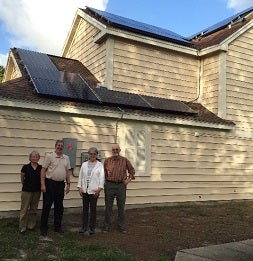 Founders Michael Cohen and Mary Diboye organized Florida’s first solar co-ops and helped launch our Florida work. |
| In January, the West Virginia legislature introduced bills that would have repealed net metering in the state. Our entire West Virginia listserv mobilized networks in response. After one week, we succeeded in securing an unprecedented 662 actions to contact House or Senate committee members. Legislators and the governor heard from more than 1,000 constituents that net metering was important to West Virginians. In response, legislators on both sides of the aisle made commitments to protect net metering and the future of solar in the state<. Check out our detailed campaign profile. | 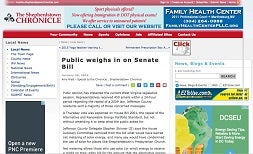 |
|
| In June, the D.C. Public Service Commission (PSC) opened case FC 1130 to examine how to modernize D.C.’s electric delivery system. The proceeding was also referred to as the “Grid of the Future” case because it examined how to integrate new technology, especially distributed zero-emission energy resources, into the grid. The following year, the PSC held a series of workshops on various “Grid of the Future” topics, inviting the D.C. Government, utilities, and commercial developers to give presentations. We participated as a stakeholder in these workshops and were represented by Earthjustice as a formal intervenor in the case. We called on the PSC to lay out clear objectives and a framework for the proceeding that would include and encourage input from regular ratepayers, not just industry and regulatory professionals. | 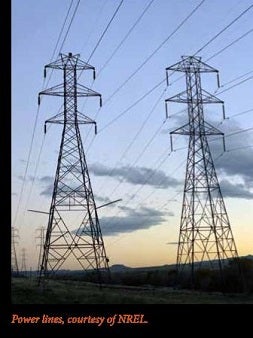 |
|
| The International Renewable Energy Council named Executive Director Anya Schoolman a 2015 Action Hero. | 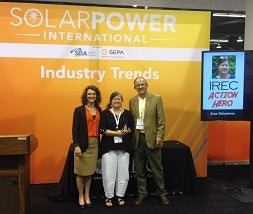 |
|
| Our solar co-ops were responsible for roughly 15 to 20 percent of all residential solar installations in Virginia. | 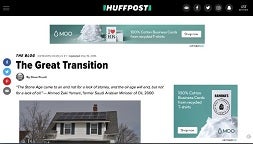 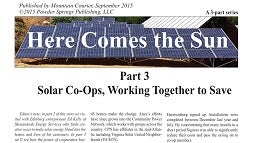 |
|
| After three years of work, finally succeeded in passing community solar legislation in Maryland. We testified in support of the legislation, organized citizen outreach to legislators, and coordinated with other groups within our informal coalition. We were particularly proud of our role in building a coalition and pushing for a carve-out for low-income subscribers. Check out our detailed campaign profile. | 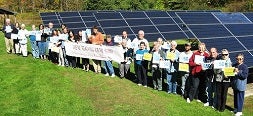 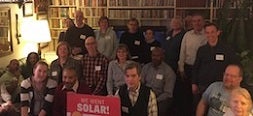 |
|
| On April 23, our West Virginia Program Director Bill Howley, was killed in an auto accident. Bill was a leading citizen advocate on energy issues in West Virginia and author of The Power Line, one of the foremost blogs on energy issues in the country. To honor Bill, who was an outstanding leader who educated and inspired us all, we created the Bill Howley Memorial Fund. The fund empowers and supports future West Virginia energy activists and educators. To date, this fund has supported the creation of new co-ops in Morgantown and Wheeling. | 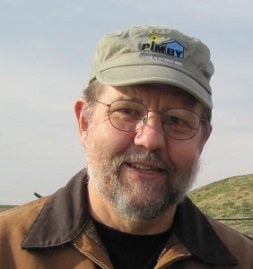 |
|
| The United States Conference of Mayors gave Blacksburg, Virginia Mayor Ron Rordam the 2015 U.S. Conference of Mayors Climate Protection Award for the town’s solar effort, which we organized with Community Housing partners. Blacksburg was the first community in Virginia to launch a such an initiative. It quadrupled the amount of residential solar in the city in one year. The program has served as a role model for many cities across the country. | 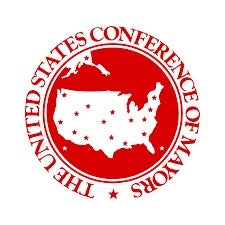 |
|
| The Metropolitan Washington Council of Governments honored us with its 2015 nonprofit | 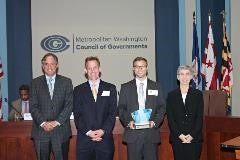 |
|
| Solar United Neighbors of Ohio (previously called OH SUN) launched in December with solar co-ops in Lorain County and Delaware County. |  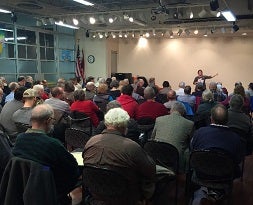 |
|
2016 | Solar United Neighbors of Florida (previously called FL SUN) officially launched in May 2016 in partnership with the Florida League of Women Voters. | 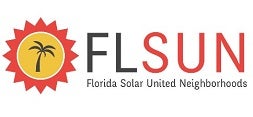 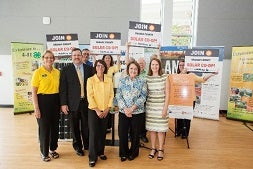 |
| In 2016, we worked with renewable energy advocates across the state of Florida and political spectrum to educate the public and fight anti-solar initiatives at the ballot box. Our community of solar supporters was actively engaged in making sure the public understood the proposed ballot amendments 1 & 4 and their impact on the solar market during both the primary and general elections. We succeeded in defeating Amendment 1 and approving Amendment 4, strengthening the Floridians' ability to own and produce their own solar power. | 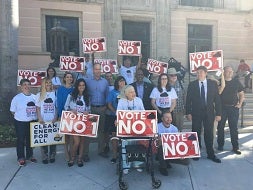 |
|
| Orlando Mayor Teresa Jacobs honored Mary Dipboye and Michael Cohen, outstanding volunteers in Florida, for organizing the highly successful East and West Orange County solar co-ops. | 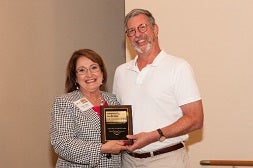 |
|
| We worked with a broad group of Ohio’s renewable energy advocates and groups to help restore Ohio’s renewable portfolio standard (RPS). More than a dozen of our co-op participants testified at the Ohio General Assembly to urge state legislators not to extend the renewable portfolio standard (RPS) freeze. Their testimony encouraged a key legislator to change her vote. This helped Governor Kasich overturn the RPS freeze and pave the way for a stronger solar market in the state. | 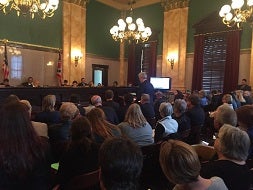 |
|
| We secured a higher renewable portfolio standard (RPS) in D.C<. The new standard doubled the District’s renewable energy requirement, including the solar carve-out. D.C. will now be 50 percent renewably-powered by 2032. The legislation included a new program known as Solar for All. The program creates a funding mechanism and mandate for the D.C. Government to provide free locally produced solar credits to nearly every low-income household in the District. Learn more about Solar for All. | 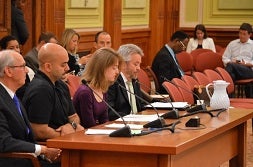 |
|
| In D.C., we advocated at the legislature and worked closely with the Public Service Commission to ensure the final rules implementing the 2013 Community Renewable Energy Act were fair and effective. We had been working to bring community solar to the District since 2011 and were thrilled to achieve our goal. Check out our detailed campaign profile. | 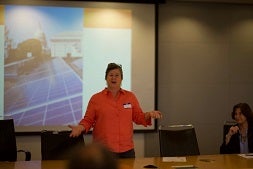 |
|
| In Maryland, we fought hard to pass community solar legislation and in 2016 worked tirelessly to ensure the new program would be accessible to all Marylanders. We were also successful in ensuring the pilot effort included a carve-out for low-income participants. Learn more about Maryland's community solar policy. | 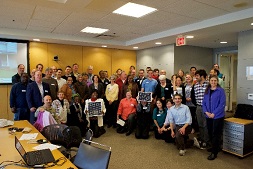 |
|
| In Virginia, we launched an ongoing campaign around the Virginia Declaration of Solar Rights. It demonstrates the broad support solar has among lawmakers’ constituents. We collected roughly 2,000 signatures and used the petition to launch targeted campaigns in the 2017 Virginia Legislative Session. | 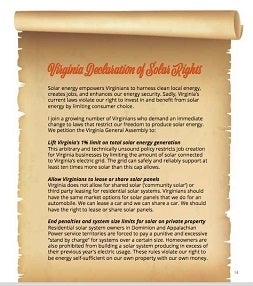 |
|
| In West Virginia, we began an intense campaign to oppose a proposal from FirstEnergy, an Ohio-based utility conglomerate, to move an old and inefficient power plant to its West Virginia rate base, which would force West Virginians to shoulder the plant’s above market costs, including a guaranteed rate of return for FirstEnergy. | 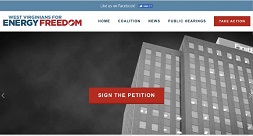 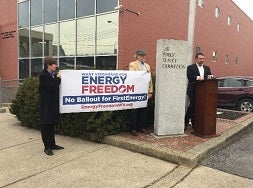 |
|
| We continued our multi-year fight to protect District ratepayers from Exelon’s proposed takeover of our local utility, Pepco. In February, the PSC rejected the settlement developed by Exelon and the city government. In its place, the Commission proposed an alternative settlement that would be approved if all settling parties agreed. We worked with the PowerDC coalition to submit more than 1,000 letters to the Mayor urging her to reject the settlement. In March, all of the deal’s major parties, excluding Exelon, rejected the PSC’s proposed settlement. Then, in a shocking move, the PSC approved the takeover anyway, prolonging the fight further. We joined Public Citizen as well as Mayor’s Office, Attorney General, and Office of the Peoples Council to challenge the decision in D.C. Circuit Court. Check out our detailed campaign summary. | 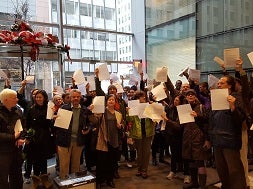 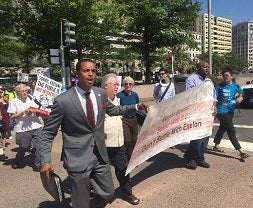 |
|
| In the summer, Pepco released an online “solar calculator” tool called WattPlan. This was supposed to help potential solar customers evaluate the cost of going solar. We carefully reviewed the calculator’s inputs and methodology, and found that its cost estimates and projected savings were severely out of date. We alerted Pepco to the tool’s errors and met with Pepco representatives to discuss correcting the calculator. All of our major critiques were addressed. | 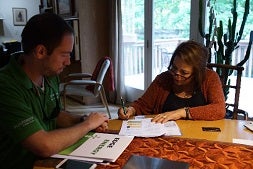 |
|
| In October, we hit our 10,000th kW of solar installed via solar co-ops! | 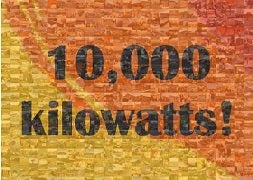 |
|
| In 2016 we completed a pilot project with the Fuel Fund of Maryland to explore the potential of a pre-paid power purchase agreement (PPA) model for bringing solar to low-income families in Baltimore. The pre-paid PPA model allowed us to utilize the 30 percent federal tax credit to decrease project costs, and to overcome many participants’ low credit score issues. We found that the solar installations enabled participants to significantly reduce and stabilize their energy costs from day one. | 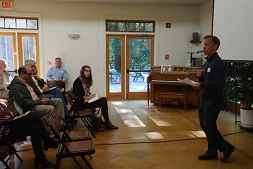 |
|
| In 2016 we completed an evaluation of the feasibility of solar paired with battery storage in the Hampton Roads area of Virginia. We found solar plus storage can increase resilience during severe weather events, has become cost-effective, and is now more widely available. Our report concluded that many opportunities exist to implement such measures. | 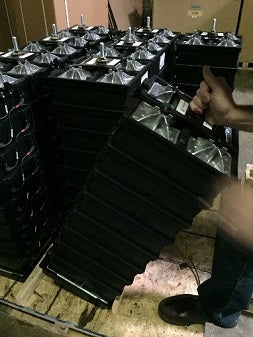 |
|
2017 | We began work with stakeholders across D.C. to implement the Solar for All program, a new effort that will use solar to lower electric bills for 100,000 low-income households. If we are successful, the program will become a model for the rest of the country and beyond. In June, we helped our 2,000th family go solar! | 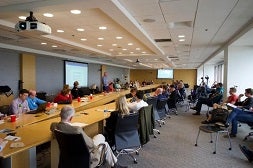 |
| In June, we helped our 2,000th home go solar! | 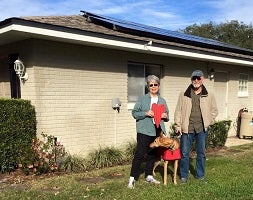 |
|
| The Catalogue for Philanthropy named us “One of the Best” small nonprofits in the Washington, D.C. area for our programmatic impact and financial responsibility. | 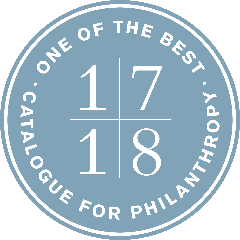 |
|
| Solar co-op member Skott Brill earned the Frostburg City Historic District Commission’s 2017 Project of the Year award for his 12-panel solar array on his garage rooftop in Frostburg’s Historic District. | 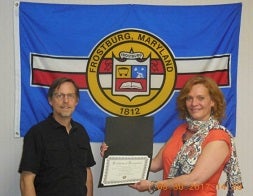 |
|
2018 | We launched Brews from the SUN. Our inaugural Brews from the Sun competition called on craft beer enthusiasts to help us crown America’s Favorite Solar Craft Brewery. The competition featured 41 craft breweries across the United States that had gone solar. | 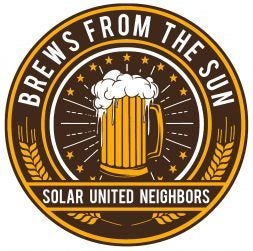 |
| We partnered with the American Solar Energy Society (ASES) to coordinate the National Solar Tour, the largest grassroots renewable energy event in the nation. On October 6 and 7, 680 solar owners across the nation opened their homes and businesses to engage their communities around the power of solar energy. | 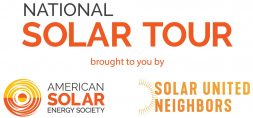 |
|
| We launched the SUN Patch Program for Girl Scouts and Boy Scouts to help younger generations discover the power of solar energy. We began a national outreach effort to all 112 regional Girl Scout councils across the country and formed partnerships with 25 councils to help spread the word about the program to troop leaders | 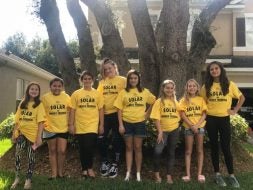 |
|
2019 | We launched a new on- the- ground program in Colorado. One of our first co-ops in the state was in the Yampa Valley, a community facing the pending closure of several coal plants. Our co-op was an opportunity to show how solar energy can help lead a just transition. | 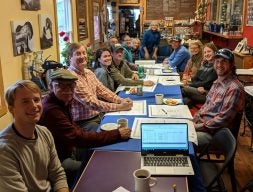 |
| In Washington, D.C. we helped 73 low-income families go solar through the Solar for All program. Program participants learned about solar energy through our solar co-op model. | 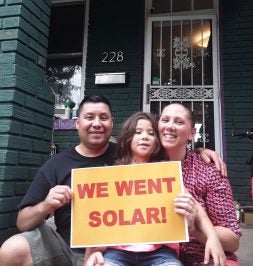 |
|
| We hosted Greene County Pennsylvania’s first Solar Festival. More than 200 people attended. Greene County is very rural. It’s deeply tied to the coal and gas industries. Virtually every existing solar homeowner in the county showed up to tell us their solar story. Many more came to learn about solar jobs and going solar. |  |
|
2020 | Our years of work in Virginia paid off. Lawmakers passed sweeping legislation to support distributed solar energy. It set a 100% clean energy target as well. We also spearheaded legislation to protect prospective solar owners from unfair restrictions from their homeowners association. | 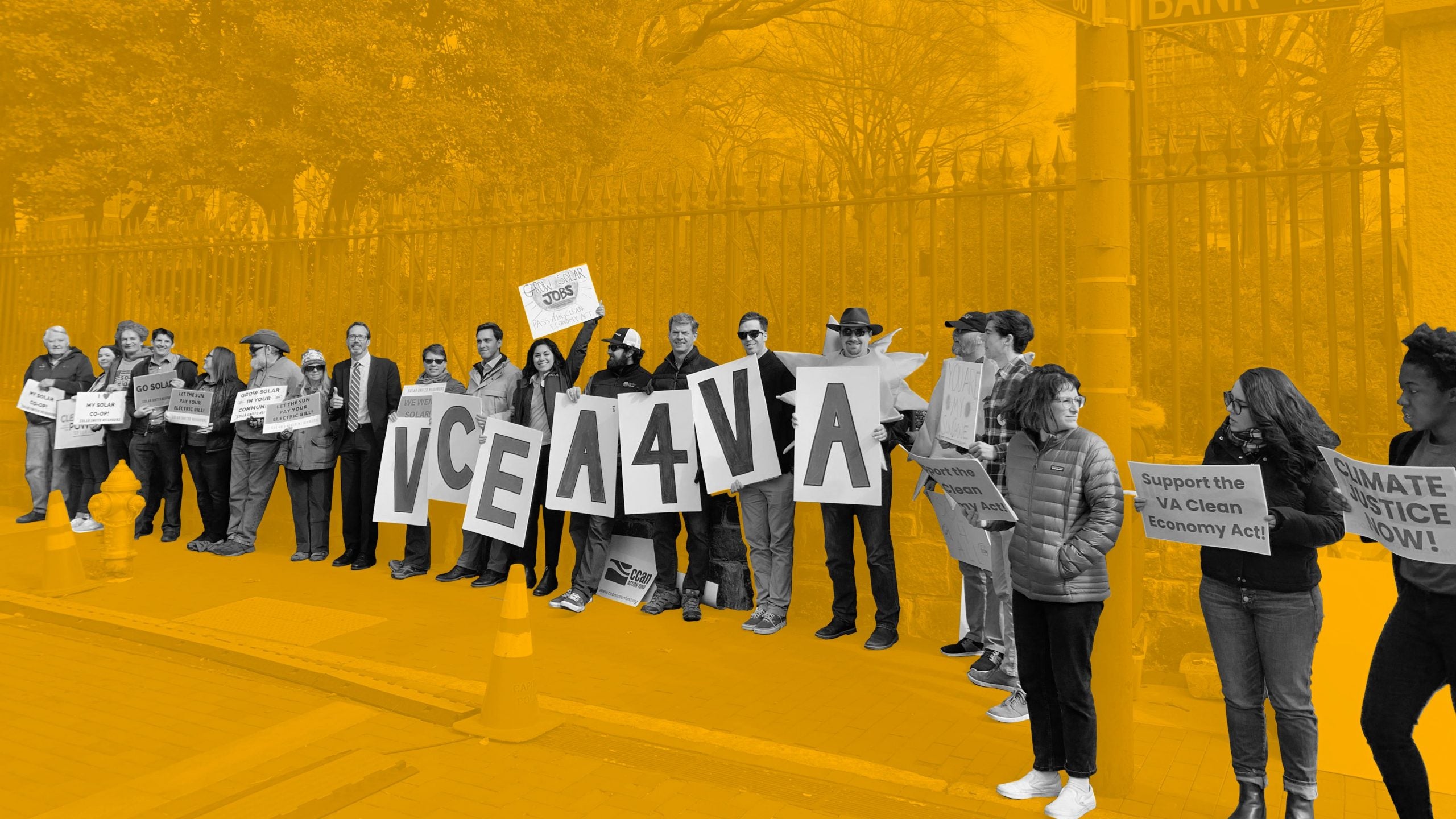 |
| We worked with the University Gardens community of Puerto Rico to help a dozen families go solar. The community is still feeling the effects of Hurricane Maria more than three years later. There is strong concern about resiliency and we were able to demonstrate that solar is a solution. | 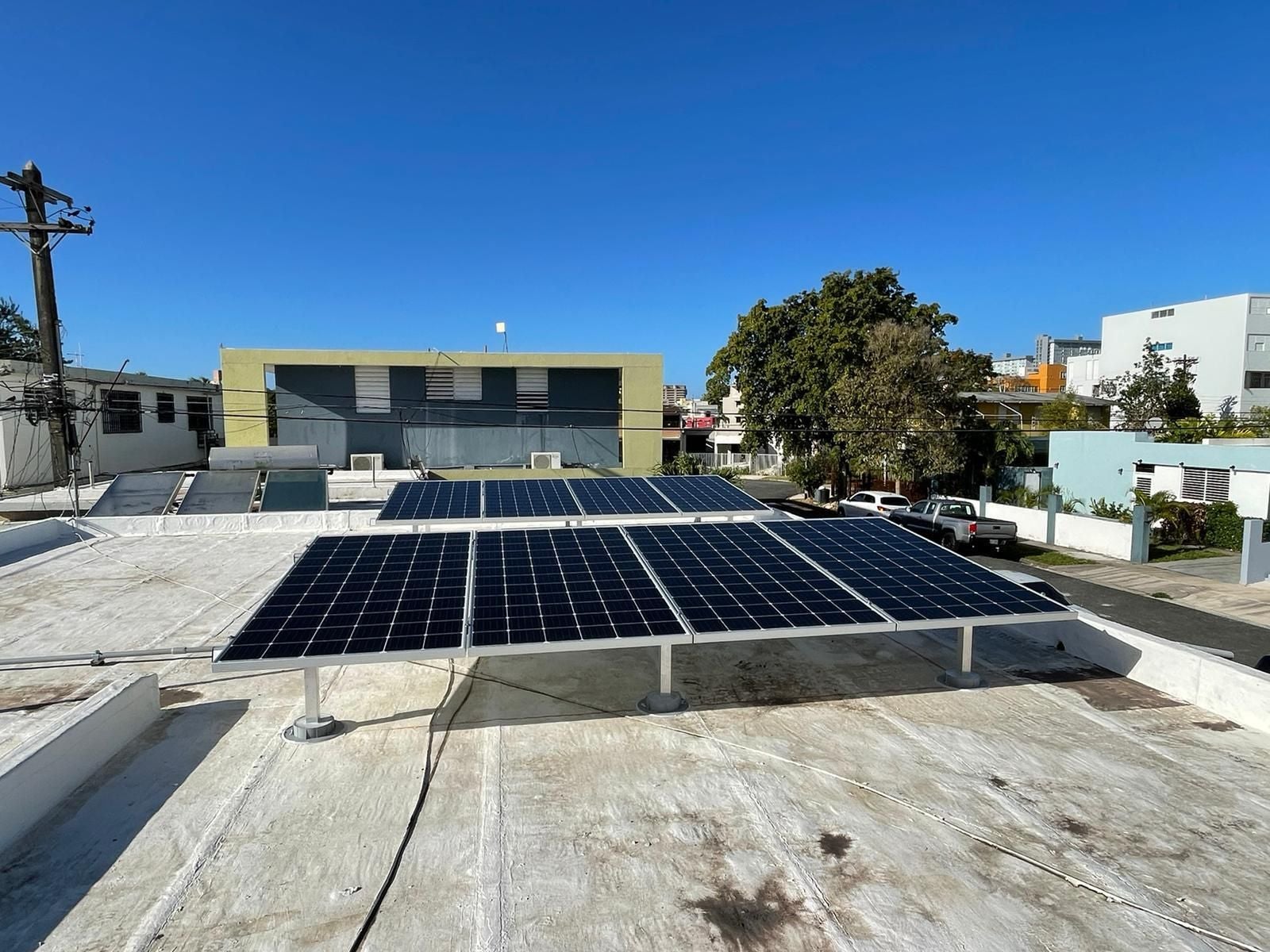 |
|
2021 | We launched our most ambitious effort ever, the 30 Million Solar Homes campaign, in partnership with the Institute for Local Self-Reliance and the Initiative for Energy Justice. This program seeks to address three urgent problems: climate change, economic downturn, and social injustice. It does so by rapidly scaling rooftop and community solar. | 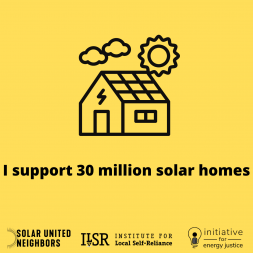 |
2022 | Solar supporters in Florida beat back an attempt by monopoly utilities to eliminate fair credit for rooftop solar. We sent letters, called, and held a major rally at the Capitol. As a result, the Governor vetoed the legislation, protecting Floridians’ right to go solar. | 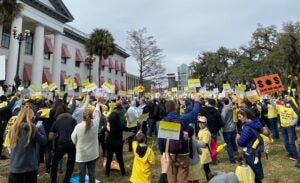 |
| Our 30 Million Solar Homes campaign strengthened the solar provisions of the Inflation Reduction Act. This included more funding to help farms and rural small businesses go solar, as well as enabling nonprofits to receive a grant in lieu of a tax credit to go solar. | 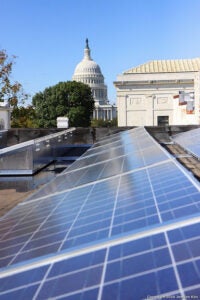 |
|
| We launched a full-time program in Puerto Rico. Our work is focused on empowering local communities and helping them transform their electric grid so that rooftop solar is at the cornerstone. | 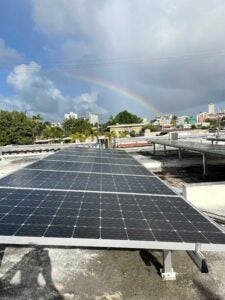 |
